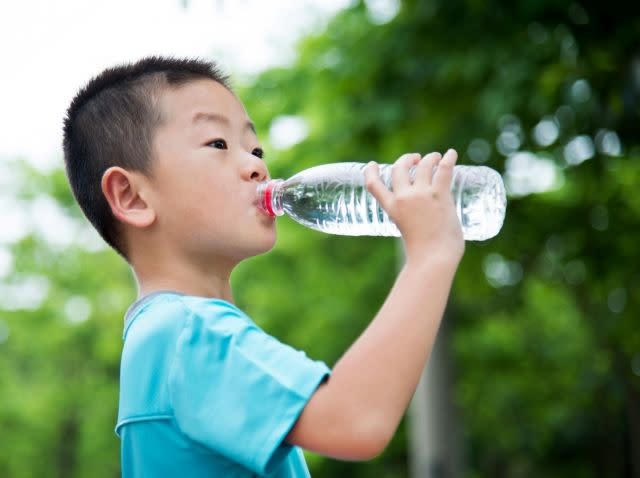Tiny pieces of plastic ‘are inside all of us’, new research warns

Researchers say that people are eating tiny pieces of plastic along with their food – after a test on faeces found plastic in every sample investigated.
People from the UK and seven other countries took part in the study – and up to 20 pieces of plastic were found in every 10g of stool sample.
Researchers believe that the plastic could damage the immune system and raise the risk of transmission of disease.
The plastic particles were between 50 and 500 micrometres in width, and the most common were polypropylene (PP) and polyethylene terephthalate (PET).
READ MORE FROM YAHOO NEWS UK:
Couple in car that towed caravan the wrong way down a busy motorway are named
Student died after ‘taking part in bar crawl initiation involving 100 triple vodkas and pig’s head’
Man admits murdering midwife Samantha Eastwood after affair
Proposed EU ban on daylight saving time could cause clock chaos in no-deal Brexit, warn peers
Theresa May insists Brexit is 95% done as rebel MPs plot revolt
Lead researcher Dr Philipp Schwabi, from the Medical University of Vienna in Austria, said: ‘Of particular concern is what this means to us, and especially patients with gastrointestinal diseases.
‘While the highest plastic concentrations in animal studies have been found in the gut, the smallest microplastic particles are capable of entering the blood stream, lymphatic system and may even reach the liver.
‘Now that we have first evidence for microplastics inside humans, we need further research to understand what this means for human health.’
Earlier this year, divers found a plastic bag lying on the bottom 36,000ft below the surface of the Pacific, in the Mariana Trench, the deepest point in the world’s oceans.
The new find was highlighted among 30,000 pieces of man-made debris seen in the deep ocean, including plastic bags, bottles and packaging.
The deeper divers went on 5,000 international dives, the bigger a percentage of plastic was found among the debris.

 Yahoo News
Yahoo News 

